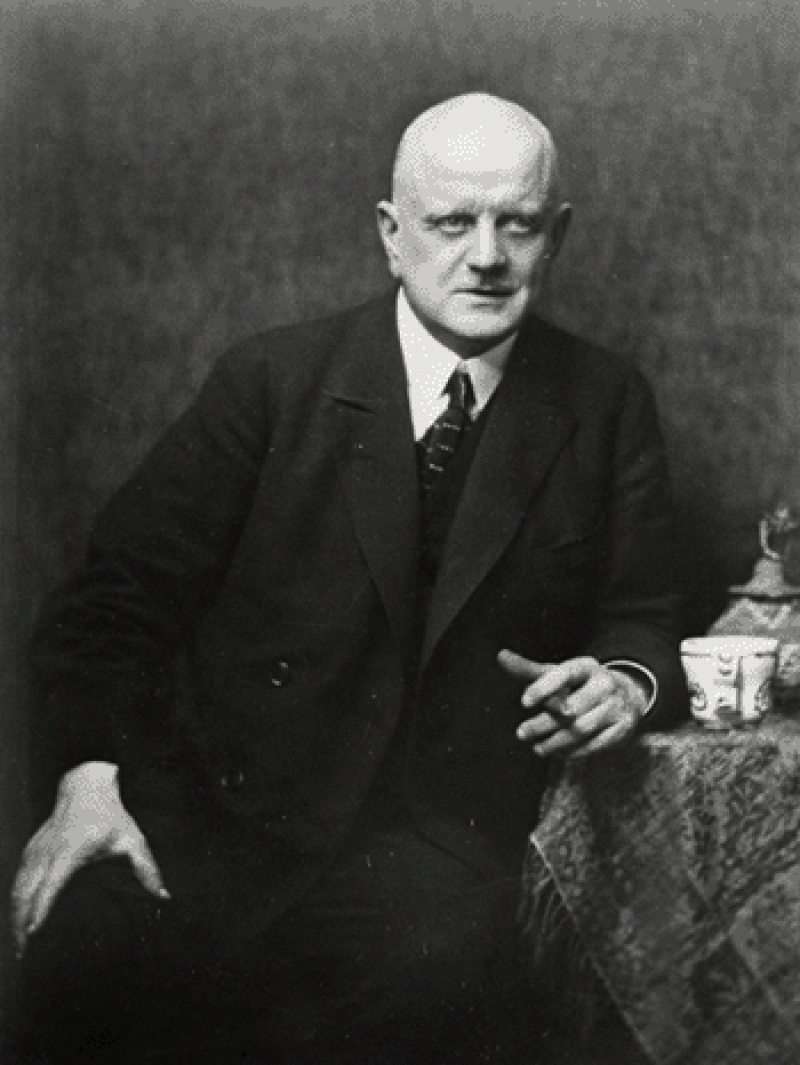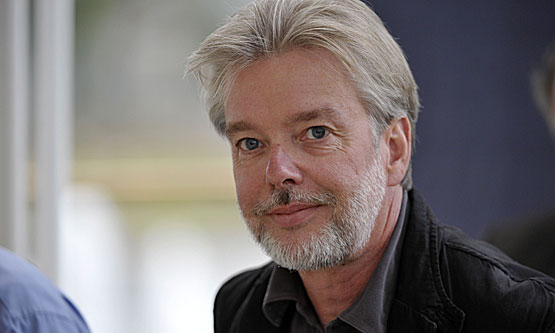BBC Symphony Orchestra, Saraste, Barbican Hall | reviews, news & interviews
BBC Symphony Orchestra, Saraste, Barbican Hall
BBC Symphony Orchestra, Saraste, Barbican Hall
Two Sibelius symphonies make a crowd in a fellow Finn's technically accomplished interpretations

Is it ever a good idea to programme two symphonies by one composer in a single concert? Maverick Valery Gergiev is likely to stand alone in applying the rule to Mahler. Yet curiously his Prom marathon of two big instalments made more sense as stages on a journey than yoking together the outwardly less time-consuming symphonic adventures of Sibelius.
Maybe it partly felt that way because I have too fixed an idea of how much there is behind the notes of the clear, concise Sixth, how it needs room to breathe and resonate (and its usual place at the beginning of a concert isn't much good, either). But it was a surprise to find the usually nuanced Saraste (pictured below) presenting it as an acid-etched exercise in Neo-Classical brevity, coming across in the process a bit like those conductors Shostakovich disparagingly termed "mezzo-fortists". A certain directness in the strings' opening hymn might be no bad thing, and it worked better still at a comparable point in the otherwise more monumental Seventh. But why abstract the wood magic of the mysterious second movement, turning its post-Wagnerian forest murmurs - one of the most haunting moments in all Sibelius - into bland, unquiet string semiquavers that never came off the printed page? Rhythms were sprung, to be sure, powering the brief whirls of Scherzo and Finale, but the exaltation and heartsurge of Sibelius's outdoor-church psalm-singing never really took flight.
 Saraste's more comprehensibly individual approach to the Seventh was one I could warm to, at least in the way he built swiftly yet organically to the first of Helen Vollam's effortlessly voiced trombone-solo cornerstones, and steered away from the last towards the more embattled closing pages. But again there was hardly enough of the sunshine or shadows in the valleys between, effortlessly though Saraste mastered the difficult tempo changes.
Saraste's more comprehensibly individual approach to the Seventh was one I could warm to, at least in the way he built swiftly yet organically to the first of Helen Vollam's effortlessly voiced trombone-solo cornerstones, and steered away from the last towards the more embattled closing pages. But again there was hardly enough of the sunshine or shadows in the valleys between, effortlessly though Saraste mastered the difficult tempo changes.
As controlled interpretations, these were streets ahead of anything the over-deliberate Osmo Vänskä can achieve. But while Saraste seems to be putting technical mastery ahead of depth in his Sibelius these days, it was all in marked contrast to the richer perspectives Sakari Oramo had brought to the Third Symphony in the launch of the BBC Symphony's Sibelius cycle back in October; and last week Ed Gardner's richer colourings supporting Gerald Finley in the orchestral songs seemed shot through with a greater sense of adventure.
But then the same had applied to Gardner's programme. Last night's first half was a bit of a so-what affair. Bartók's Dance Suite allowed Saraste to demonstrate that essential component of great conducting, the freedom of rubato, in the deceptively spontaneous-seeming way the Hungarian inspirations lurch into life. But what's it all amount to, anyway, beyond a skilful application of orchestral to local colour? The question is probably one György Kurtág more pertinently wants us to ask of his enigmatic, episodic ...concertante..., receiving its UK premiere some years after the first performance with the same accomplished soloists for whom Kurtág wrote the work, violinist Hiromi Kikuchi and her husband, the Concertgebouw's principal viola Ken Hakii.
Their beginning and endgame in half-lit consonance proved spellbinding, as were several of the strange partnerships they forged in-between with members of an unorthodox orchestra. But Kurtág's manner seems to work best in epigrams, not 24 minutes of would-be-fluid concertante dialogue. And did the 10 percussionists, the multiple woodwind and the cimbalom player really make their mark even at the more refined end of the spectrum? Not sufficiently to leave the audience anything more than baffled, and not in a good way.
Share this article
Add comment
The future of Arts Journalism
You can stop theartsdesk.com closing!
We urgently need financing to survive. Our fundraising drive has thus far raised £49,000 but we need to reach £100,000 or we will be forced to close. Please contribute here: https://gofund.me/c3f6033d
And if you can forward this information to anyone who might assist, we’d be grateful.

Subscribe to theartsdesk.com
Thank you for continuing to read our work on theartsdesk.com. For unlimited access to every article in its entirety, including our archive of more than 15,000 pieces, we're asking for £5 per month or £40 per year. We feel it's a very good deal, and hope you do too.
To take a subscription now simply click here.
And if you're looking for that extra gift for a friend or family member, why not treat them to a theartsdesk.com gift subscription?
more Classical music
 Echo Vocal Ensemble, Latto, Union Chapel review - eclectic choral programme garlanded with dance
Beautiful singing at the heart of an imaginative and stylistically varied concert
Echo Vocal Ensemble, Latto, Union Chapel review - eclectic choral programme garlanded with dance
Beautiful singing at the heart of an imaginative and stylistically varied concert
 Scott, Irish Baroque Orchestra, Whelan, RIAM, Dublin review - towards a Mozart masterpiece
Characteristic joy and enlightenment from this team, but a valveless horn brings problems
Scott, Irish Baroque Orchestra, Whelan, RIAM, Dublin review - towards a Mozart masterpiece
Characteristic joy and enlightenment from this team, but a valveless horn brings problems
 Classical CDs: Voice flutes, flugelhorns and froth
Baroque sonatas, English orchestral music and an emotionally-charged vocal recital
Classical CDs: Voice flutes, flugelhorns and froth
Baroque sonatas, English orchestral music and an emotionally-charged vocal recital
 Kanneh-Mason, Britten Sinfonia, Shave, Milton Court - a grin and a big beaming smile
A pair of striking contemporary pieces alongside two old favourites
Kanneh-Mason, Britten Sinfonia, Shave, Milton Court - a grin and a big beaming smile
A pair of striking contemporary pieces alongside two old favourites
 theartsdesk at the New Ross Piano Festival - Finghin Collins’ musical rainbow
From revelatory Bach played with astounding maturity by a 22 year old to four-hand jazz
theartsdesk at the New Ross Piano Festival - Finghin Collins’ musical rainbow
From revelatory Bach played with astounding maturity by a 22 year old to four-hand jazz
 First Person: Manchester Camerata's Head of Artistic Planning Clara Marshall Cawley on questioning the status quo
Five days of free events with all sorts of audiences around Manchester starts tomorrow
First Person: Manchester Camerata's Head of Artistic Planning Clara Marshall Cawley on questioning the status quo
Five days of free events with all sorts of audiences around Manchester starts tomorrow
 Goldscheider, Brother Tree Sound, Kings Place review - music of hope from a young composer
Unusual combination of horn, strings and electronics makes for some intriguing listening
Goldscheider, Brother Tree Sound, Kings Place review - music of hope from a young composer
Unusual combination of horn, strings and electronics makes for some intriguing listening
 theartsdesk Q&A: composer Donghoon Shin on his new concerto for pianist Seong-Jin Cho
Classical music makes its debut at London's K-Music Festival
theartsdesk Q&A: composer Donghoon Shin on his new concerto for pianist Seong-Jin Cho
Classical music makes its debut at London's K-Music Festival
 Helleur-Simcock, Hallé, Wong, Bridgewater Hall, Manchester review - moving lyricism in Elgar’s concerto
Season opener brings lyrical beauty, crisp confidence and a proper Romantic wallow
Helleur-Simcock, Hallé, Wong, Bridgewater Hall, Manchester review - moving lyricism in Elgar’s concerto
Season opener brings lyrical beauty, crisp confidence and a proper Romantic wallow
 Kohout, Spence, Braun, Manchester Camerata, Huth, RNCM, Manchester review - joy, insight, imagination and unanimity
Celebration of the past with stars of the future at the Royal Northern College
Kohout, Spence, Braun, Manchester Camerata, Huth, RNCM, Manchester review - joy, insight, imagination and unanimity
Celebration of the past with stars of the future at the Royal Northern College

Comments
Yes, for some reason I never